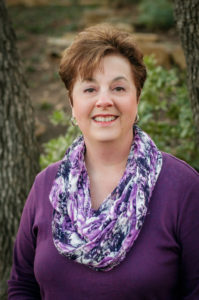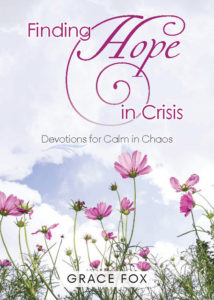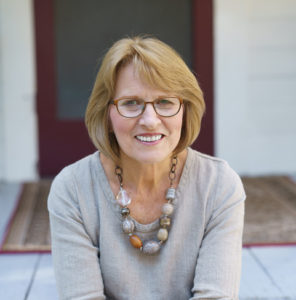 WHEN THE YEARS begin to creep up on you faster than you’d like, you may become apprehensive about the changes taking place. Getting older can seem like a real bummer. But author Deb DeArmand has taken the challenge to offer some encouragement for you, along with a lot of laughs, in her new book, We May Be Done But We’re Not Finished! Making the Rest of Your Life the Best of Your Life. In our interview today, Deb will give you a peek into her book to help you step into the next phase of life with more confidence.
WHEN THE YEARS begin to creep up on you faster than you’d like, you may become apprehensive about the changes taking place. Getting older can seem like a real bummer. But author Deb DeArmand has taken the challenge to offer some encouragement for you, along with a lot of laughs, in her new book, We May Be Done But We’re Not Finished! Making the Rest of Your Life the Best of Your Life. In our interview today, Deb will give you a peek into her book to help you step into the next phase of life with more confidence.
Linda: I love the title of your new book. We May Be Done, But We’re Not Finished. Why did you write it and who is it for?
Deb: As I began to think about the changes I’d been experiencing in my life, I knew there had to be other women who felt on occasion as I did – that they’d landed on Mars. I also knew God had big things in store for us at this time in our life. We’re old enough to have learned some lessons, and young enough to reap the benefits of those lessons – and share them with others. I wrote this book with an awesome team – 20 authors – all 50+ years in age, each of whom write their own chapter about their experiences.
Linda: I have a feeling there’s an interesting story behind the title, We May Be Done, But We’re Not Finished. Can you tell us about that?
Deb: As the years go by, there comes a time for all of us when we realize a shift has occurred in how we are seen. Others begin to address us more formally and with greater deference. It’s no longer Miss, it’s Mam. And that’s the tip of the iceberg.
- At first, it’s a nice surprise – right up until you consider the pattern. You realize you now are seen as old—or older, and the surprise becomes a pie in the face.
- We begin to experience offers of assistance we have not requested. “Would you like me to carry your groceries out for you, Mam?” or when the kid at the restaurant points out the Silver Menu for Seniors. “You’re a bit late tonight for the discount dear, but I wanted to make sure you are aware of it.” I’m aware I’d like to tackle you right now, is what I’d like to say, but a simple, nod and “thank you” will keep me from being arrested.
Linda: How do you think it impacts us when we begin to see a shift in how people see us? Is it really a problem?
Deb: When I began to compare notes with friends of the same age, we were all experiencing it. It can definitely change how we see ourselves if we allow it to do so. It may cause us to lose self-confidence and begin second-guessing ourselves. It can also impact our opportunities as well.
if we allow it to do so. It may cause us to lose self-confidence and begin second-guessing ourselves. It can also impact our opportunities as well.
- My job-seeking sister-in-law relocated when she was in her late 50’s. She had a great resume and was highly qualified in her field. One hiring manager, during an interview however, shared that “For what I’d have to pay you for your experience, I can get two college grads right out of school. And they’re far more likely to be here longer than you. You’ll be retiring in, what? About six years?” She didn’t get the job – and by the time she got to her car, she knew she didn’t want to work for that guy! But her age was center stage in his mind.
- Marriages are often impacted as well. We’ve spent many years raising families, driving carpools, and focused on our children. Nothing wrong with that. But it can come at a cost.
Linda: How does the book deal with the challenges affecting marriage as we grow older? Does the book have some chapters specifically about this subject?
Deb: Yes. We’ve been busy parenting for so many years the relationship as husband and wife is often back-burnered. We may experience surprise challenges we never saw coming as we move into life with “just the two of us.”
One chapter by Michelle Rayburn chronicles the truth behind the traditional vow, “till death do us part.” With tongue (only partially) in cheek, she shares the everyday shift of growing together, not just growing old. Here’s an excerpt from her chapter: “For Better or For Hearse”:
“Some couples cruise into retirement with the spouse of their youth, and others find themselves navigating an unfamiliar road with a second marriage. Some won’t remarry but will treasure the memories from the past. The thing we all share is the uncertainty of time that becomes more real as we age.
“Sometimes I look across the room and wonder if I can handle thirty or forty more years of Phil’s snoring in the recliner with the remote in hand. He probably wonders if he can handle more decades of my phobia about chewing noises—that will probably get worse if he ever needs dentures! If we live as long as his grandparents did, we aren’t even halfway there. Oy.”
Michelle Rayburn’s chapter, as does every chapter in We May Be Done, But We’re Not Finished, offers tips, tools, and solutions to address the challenges or leverage the gifts that come with age.
Linda: What are some of the other issues addressed by the authors of the book?
Deb: Deb Coty has a great chapter in the book titled, “Pressed but Not Squashed.” She’s part of the sandwich generation – helping an adult child, now a single mom– while providing eldercare for her 92-year-old mother. Her encouragement? “We are pressed on every side, yet not crushed; we are perplexed, but not in despair.” 2 Corinthians 4:8 (NLT).
Some of the stories help readers tackle issues that come with age: health issues, adult children, providing eldercare for our parents, or staying active after retirement.
Other chapters tell about new opportunities to serve and get involved with ministry, travel, hobbies, and new or second careers. Pursuit of a “someday” dream. One of our contributors, Phylis Mantelli, after a lifetime of longing, took up dance class in her fifties! Amazing!
Linda: Is there a theme that runs through the book? What do you want readers to take away from your book, We May Be Done, But We’re Not Finished?
Deb: Along with my talented author friends we chronicle our real-life experiences—the ups and the downs—and explore the exciting opportunities we’ve discovered.We prefer to consider the opportunities of elder wisdom versus mourning the loss of our youth.
Our banner scripture is: “Finish what you started in me, God. Your love is eternal – don’t quit on me now! Ps. 138:8 (MSG).
When experienced women invite God to redirect their focus to his purpose and calling, his faithfulness carries us to places we’d never imagined. This can be an exciting time. We want readers to prepare to see new possibilities for their own lives through the stories here of women transitioning to the north side of fifty including their challenges, adventures, and laugh-out-loud-moments.
Linda: Where can readers find out more about this book along with your others?
Deb: You can find more about me and my books at debdearmond.com and on Facebook . This book, along with my previous four can be found on Amazon under the title: We May Be Done, But We’re Not Finished.
















